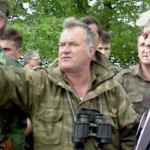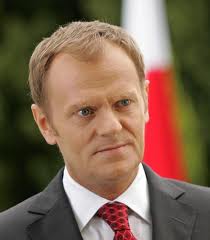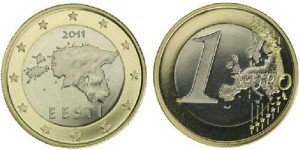Euro-Integration
 «Если бы мы не жили в глобализированном мире в эпоху Интернета, электронных паспортов и мобильных телефонов, этому еще было бы какое-то оправдание…. Виза — это рудиментарное средство, созданное, чтобы контролировать передвижения людей и не пускать криминальных лиц, как будто мафиозные элементы обращаются в консульства в надежде получить разрешения на свои спецтуры. Тот же самый разговор шпионов…
«Если бы мы не жили в глобализированном мире в эпоху Интернета, электронных паспортов и мобильных телефонов, этому еще было бы какое-то оправдание…. Виза — это рудиментарное средство, созданное, чтобы контролировать передвижения людей и не пускать криминальных лиц, как будто мафиозные элементы обращаются в консульства в надежде получить разрешения на свои спецтуры. Тот же самый разговор шпионов…
Несмотря на то что после распада СССР самое популярное слово в России стало “почём”, никто себе всерьез не задавал вопроса, сколько стоит содержать эту средневековую систему виз и какой непосредственный ущерб она провоцирует… Вряд ли в России стоимость этой машины окупается… У европейцев есть преимущество: они разделяют общие расходы среди всех членов Шенгенского соглашения, то есть среди 25 стран….
Туристические страны, такие как Италия и Испания, выступают за отмену виз с Россией…
Интересно посмотреть на то, как другие страны решили проблемы, связанные с визами в ЕС. Украина является здесь хорошим примером. С 1 мая 2005 года для граждан Европейского союза, США, Японии, Канады и ряда других государств не нужна виза для посещения страны на срок до 90 дней. Решение было принято Киевом в одностороннем порядке. Ответные шаги Евросоюза пока заставляют себя ждать, но все надеются на сюрприз во время проведения чемпионата Европы по футболу 2012 года… В течение этих лет безвизового режима миллионы европейских туристов открыли для себя Украину, влюбились в красоту Киева, Львова, Одессы…
В преддверии Олимпиады в Сочи в 2014 году Россия пока наблюдает за шагами соседа, но скоро и ей придется принимать какие-то решения, как во время финала Лиги чемпионов 2008 года в Москве. Иначе вырастет риск фиаско, связанный с малым количеством иностранных зрителей в Сочи-2014…
Как известно, в Европе есть страны, которые выступают за отмену виз, но есть и другие, в которых русофобия — еще достаточно распространенное чувство. Каждое шенгенское государство должно дать свое согласие на то, чтобы изменить общие правила. После начала “арабских весен”, в январе, ЕС получил подтверждение тому, что миграционная волна с юга, из Африки, теперь опаснее, чем с востока, из бывшего соцлагеря. Отношения между Францией и Италией перенесли тяжелые испытания из-за десятка тысяч тунисских нелегалов. Некоторые члены Шенгенского соглашения снова начали контролировать свои границы… Ожидать в ближайшее время существенных изменений в этой средневековой системе контроля народов, увы, не стоит…
Конечно, вопрос виз имеет не только нерешенные технические проблемы, но и политические черты. Европа тщательно наблюдает за развитием российской демократии, которой в этом году исполняется уже 20 лет…
Учитывая приближение сочинской Олимпиады и чемпионата мира по футболу в России, время сейчас играет не на пользу вашей стране, которая никак не хочет поставить себя в то положение, когда самые дружественные ей европейские партнеры могли бы оказать свою помощь».
Статья Джузеппе Д’Амато Московский Комсомолец № 25661 от 7 июня 2011 г. Giuseppe D’Amato Moskovskij Komsomolets.
Serbia, Mladic in exchange for EU membership?
26 May 2011
From EuroNews
The arrest of Ratko Mladic is certainly a major step towards a faster integration of Serbia within the EU. His detention has also closed a bloody chapter in the former Yugoslav history, bringing the region closer to reconciliation.
The full co-operation with the International Criminal Tribunal for the former Yugoslavia (ICTY) is the main pre-condition for the negotiations with Brussels. The EU signed a so-called Stabilisation and Association Agreement (SAA) – including an interim deal aiming to facilitate economic and trade relations – with Serbia in April 2008, but then decided to freeze it under Dutch pressure. Only in December 2009 the Netherlands put aside objections related to Belgrade’s performance on war crimes probes.
General Mladic led the militia of the breakaway Republica Srbska, which sought to impose a Serbian identity on the multi-ethnic state of Bosnia; he was the architect of ethnic-cleansing schemes that included the Siege of Sarajevo and the 1995 Srebrenica Massacre in which about 8,000 Bosnian Muslim men were systematically executed. He was indicted by the UN war crimes tribunal in The Hague in 1995 for genocide and other crimes.
The hunt for Mladic started already at the end of 1995. Many observers in Serbia and in the EU suspect that the general has been protected for years by Serbian security forces loyal to President Slobodan Milosevic, who was ousted from power in October 2000. Mladic’s former political master Radovan Karadzic was arrested in 2008 and is still in The Hague.
By the end of the year, after so long negotiations, Serbia will have the chance of formally becoming an EU membership candidate and getting a starting date for accession talks. Serbian President Tadic rejected criticism that Belgrade had only taken action following international pressure and had not calculated when to arrest Mladic, who is considered a hero by local nationalists. But there are still too many unanswered questions.
The European integration of Serbia, Bosnia, and Kosovo is the promise in exchange for concessions to old enemies and the achievement of a complete stable peace in the region. The problem is, however, to understand whether the 27 are ready to accept new members, who have such big open questions in their recent history.
Giuseppe D’Amato
Poland-Libya. Tusk criticizes Europe for its “hypocrisy” and low protection of civilians.
12 Apr 2011 Poland highlights the European “hypocrisy” in Northern Africa. This is one of the main reasons behind Warsaw’s decision not to participate in NATO’s military operations in Libya, Polish Prime Minister Donald Tusk told Gazeta Wyborcza. According to him, Europe risks creating the impression it only intervene when oil supplies are at stake.
Poland highlights the European “hypocrisy” in Northern Africa. This is one of the main reasons behind Warsaw’s decision not to participate in NATO’s military operations in Libya, Polish Prime Minister Donald Tusk told Gazeta Wyborcza. According to him, Europe risks creating the impression it only intervene when oil supplies are at stake.
“Although there exists a need to defend civilians from a regime’s brutality, isn’t the Libyan case yet another example of European hypocrisy in view of the way Europe has behaved towards Gaddafi in recent years or even months?” said Mr. Tusk. He also added: “If we want to defend people against dictators and repression, torture or imprisonment, then this rule must be universal.”
In future Poland, a usually staunch NATO ally that sent soldiers to Iraq and still has 2,600 troops in Afghanistan, “will take decisions on military involvement elsewhere only when” there’s “a 100 percent conviction that it is absolutely necessary,” explained Mr. Tusk.
Warsaw that assumes the European Union’s rotating six-month presidency in July is also a close ally to the United States. President Obama decided to withdraw its military after the first days of the intervention. Poland has no national interests in Libya and faces parliamentary elections in autumn. The current war has shown that the EU does not have a common foreign policy that it is still in the hands of the states. French president Sarkozy and British Prime minister Cameron’s initiative in Africa has provoked divisions in the 27-nation bloc.
Poland is the biggest beneficiary of the regional EU aids. Talks on the EU’s next multi-year budget are set to begin later this year under the Polish presidency. At that time it would be important not to forget other types of “hypocrisy”.
Fittissima l’agenda del vertice del gruppo di Weimar, il primo dal 2006 dopo il congelamento voluto da Lech Kaczynski. Nello splendido palazzo di Wilanow il presidente polacco Komorowski, il collega francese Sarkozy e la cancelliera tedesca Merkel si sono soprattutto confrontati sulle tematiche continentali.
“Poiché 17 Paesi hanno l’euro – ha spiegato il capo dell’Eliseo – è normale che i loro ministri delle Finanze si incontrino”. Attenzione a non creare un’Europa a due velocità, è l’invito di Varsavia.
La Polonia, ancora fuori dalla moneta unica, gestirà dal primo luglio 2011 come presidente di turno dell’Unione la complessa trattativa sul nuovo budget continentale nel periodo 2014-2021. “Stiamo ancora aspettando le proposte della Commissione”, ha annunciato Komorowski, il cui Paese ha ottenuto da Bruxelles oltre 67 miliardi di euro dal precedente bilancio. “Non abbiamo parlato dei dettagli – ha ammesso la Merkel -, ma speriamo che il negoziato sia buono”. Sarkozy ha quindi ribadito che i deficit dei singoli Stati vanno ridotti.
Il gruppo di Weimar, creato nel 1991 per promuovere la cooperazione tra i tre Paesi ed aiutare la Polonia ad integrarsi meglio in Europa dopo il comunismo, si è augurato rapporti più forti con la Russia.
«Чем дольше живу я в России, тем больше ощущаю себя нерусским… Развилась другая идентичность, которую сам я не осознавал, пока жил там. А здесь, в России, понял, что я — европеец. Или евросоюзник… Неважно, встречаю ли я в России каталонского коллегу, студента из Швеции, голландскую правозащитницу или итальянского торговца деликатесами, — сразу чувствую с ними земляческую близость. Мы понимаем друг друга, у нас есть не только общая база юмора, но и ценностей, и стереотипов. Свой менталитет. Другой, чем у русских…
Это Европа, старуха Европа, заповедник терпимости для секс-меньшинств, гастарбайтеров и велосипедистов, зона правовой и банковской безопасности, край социальных гарантий. Наша Европа умеренная, многонациональная, без комплексов неполноценности или претензий на статус самой крутой. Европа — не Америка и уж точно не Россия.
Россиянам мы в основном сочувствуем… У нас столько общего!… У каждого русского очень много своих дел, но практически нет дела общего… Как и европейцы, даже больше, русские заботятся о благе своих близких, достаточно узкого круга родственников, одноклассников, сослуживцев. Но, в отличие от европейцев, большинству русских сугубо по фигу благо их компании, общества или Родины».
Штефан Шолль Cтатья Московский Комсомолец № 25549 от 21 января 2011 г. Stefan Scholl Moskovskij Komsomolets
Poland – Lithuania, the “W” dispute.
14 Jan 2011“Poland and Lithuania are deeply divided over the letter w. Used a lot in Polish, the letter doesn’t exist in Lithuanian. That and other spelling differences are irritating Lithuania’s Polish minority, who demand the right to spell their names in Polish in passports and other documents…in recent months other disagreements have helped escalate it to a full-blown diplomatic standoff….Similar disputes are happening elsewhere in Eastern Europe. A Slovak language law limiting the use of Hungarian and other minority languages went into effect Sept. 1, 2009, stoking political tensions between Slovakia and Hungary and garnering criticism from EU authorities.”
Article – AP Lithuania – January 14th, 2011
Estonia, Euro Happy End.
1 Jan 2011 The dream has become reality. Estonia is now totally part of Europe after Tallinn’s adoption of the Euro. The long path, begun in the Eighties of the 20th century when the Baltic republic was enclosed forcefully in the USSR, has come to the most cheerful happy end.
The dream has become reality. Estonia is now totally part of Europe after Tallinn’s adoption of the Euro. The long path, begun in the Eighties of the 20th century when the Baltic republic was enclosed forcefully in the USSR, has come to the most cheerful happy end.
After getting its independence from the Kremlin in 1991 Estonia started moving westwards away from the dominance of its mighty neighbour. In 2004 Tallinn entered the European Union and NATO. But it was not enough for the young Estonian rulers. “We are at sea in a small boat tied to an ocean liner. In a storm or otherwise, we’d feel better being on board,” explained the Estonian Minister of Finance Jürgen Ligi why his country had decided to become the 17th State to use the common currency.
And without any doubt for the Baltic state of 1.3 million inhabitants, being in the Eurozone club is preferable to uncertainty linked to its outgoing kroon currency and is seen as a way to attract further investment. “In Estonia we are also sure that the euro will support trade,” Prime Minister Andrus Ansip told Reuters, pointing to gains for ordinary people. “Now people are just wasting their money in the currency exchange, why do they have to do that?” he said.
Estonia’s debt and budget deficit are among the lowest in the Eurozone. To meet the common currency entry terms, Ansip’s centre-right government made budget deficit cuts equal to more than 9 percent of GDP. Inflation also fell as the economy contracted nearly 14 percent in 2009 after a pre-crisis boom.
The European Commission raised in its fresh autumn forecast Estonia’s economic growth forecast to 2.4% for the year 2010 and 4.4% for 2011. In 2012 the economy should grow 3.5%.
“The foreign policy goals of Estonia have been to embed itself in as many international organisations and clubs as possible, so that it will never find itself isolated or without friends ever again,” Andres Kasekamp, director of the Estonian Foreign Policy Institute said. “Membership of the Eurozone will not only boost Estonia’s economic prosperity, but will enhance security,” he added.
But there are some sceptics. “Welcome to the Euro Titanic” is their slogan. “We are joining at the worst possible time and cannot be sure the Eurozone will exist in the same form as it does now. Even in 2011 there could be very big changes or reforms,” said lawyer Anti Poolamets, who lead an anti-Euro campaign.
Confident for the euro, Russia and Europe may join single currency someday in the future. Mr. Vladimir Putin took part in the German – Russian summit in Berlin. The euro has proven itself “a stable world currency,” Russian Prime Minister said. “We have to get away from the overwhelming dollar monopoly. It makes the world economy vulnerable,” Putin added. Earlier in a letter edited by a German newspaper the former President wrote “We should be frank about it: The global economic crisis has revealed both Russia and the EU to be economically very vulnerable.” Mr. Putin suggested to create a free-trade zone.
Mrs. Angela Merkel called that a “vision for the future,” and stressed the need for close economic cooperation as a first step. “But the closer our economies are linked, the easier and the more interesting it will be to adjust also the currency policy,” the German Chancellor said. In the meantime, Mrs. Merkel added, Moscow had to conclude talks to join the W.T.O. Russia, which opened its bid to join the WTO in 1993, is the last major world power not a member of the Geneva-based global trade body.
Mr. Putin expressed criticism to the Third Energy Package. Agreed in 2009, it was designed to liberalize the EU’s energy markets by separating the production and distribution networks of large energy companies to foster more competition. The other element of the package allowed smaller energy companies access to the grids, which had been blocked by the big companies. “Our companies, together with German partners, legally acquired distribution assets in Lithuania,” Mr. Putin said. “Now they are being thrown out there with reference to the Third Energy Package. What is this then? What is this robbery?”
A new expensive energy strategy for Europe.
15 Nov 2010Europe needs a new strategy for energy. The narrow interests of national capitals prevailed too long. EU leaders will be asked to support a plan for unity at the first EU energy summit on February 2011. These are the main points in European Union Energy Commissioner Guenther Oettinger’s programme unveiled in Brussels. According to his remarks the Twenty-seven have to invest 1 trillion euros over the next decade in a shared EU energy network.
The International Energy Agency forecasted global oil supplies would peak around 2035, when oil prices would exceed $200 a barrel, kicking off a scramble for alternative energy sources. “To have an efficient, competitive and low-carbon economy, we have to Europeanize our energy policy and focus on a few, but pressing, priorities,” Oettinger said. The idea of uniting Europe’s infrastructure is not new, nor is that of liberalizing the markets for the gas and electricity that flow through it.
Article – Deutsche Welle – November 2010.
BUCHAREST, Romania – Romania and Moldova signed a border treaty Monday, almost two decades after Moldova declared independence from the Soviet Union, Associated Press writes.
Romania’s Foreign Minister Teodor Baconschi and Moldova’s Prime Minister Vlad Filat emphasized the good co-operation between the neighbours, which has resulted in a number of new agreements being adopted in the past year since a pro-European alliance came to power. Romania supports Moldova’s current government. Monday’s signing took place ahead of a general election in Moldova on Nov. 28 in which the pro-European parties face the Communists who favour closer ties to Moscow.
Romania’s President Traian Basescu said last month that the treaty will disprove claims by Moldovan Communists that Romania has territorial claims on Moldova. This was echoed by Baconschi, who said that by signing the document “we also discourage the obsessive affirmations” of some Moldovan politicians who believe Romania has claims on Moldova. The treaty deals with technical issues such as the marking of the border, usage of water, railways and roads, fishing, hunting and breaches of the border regime.
Romania has been lobbying hard for closer ties between Moldova and the European Union, of which Romania is a member. Baconschi said Romania hopes that the border with Moldova will eventually become an internal border within the European Union.
European Commission President Jose Manuel Barroso has welcomed the signing of a border treaty, calling it “an excellent example” of regional cooperation. Bucharest has repeatedly refused to sign a bilateral political treaty with Moldova, most of which was part of Romania before World War II.
Romania was the first country to establish diplomatic relations with Moldova after the latter declared independence from the Soviet Union in August 1991. Romania’s President Traian Basescu had repeatedly stated that Bucharest shall never sign a treaty recognizing the consequences of the Molotov-Ribbentrop Pact and the secret additional protocol to it. However, the delicate pre-election situation in Moldova has finally changed Romania’s official stance on this issue.
Welcome
We are a group of long experienced European journalists and intellectuals interested in international politics and culture. We would like to exchange our opinion on new Europe and Russia.
Categories
- Breaking News (11)
- CIS (129)
- Climate (2)
- Energy&Economy (115)
- EU Eastern Dimension (85)
- Euro 2012 – Sochi 2014 – World Cup 2018, Sport (43)
- Euro-Integration (135)
- History Culture (198)
- International Policy (261)
- Military (74)
- Interviews (18)
- Italy – Italia – Suisse (47)
- Odd Enough (10)
- Poland and Baltic States (126)
- Religion (31)
- Russia (421)
- Survey (4)
- Turning points (4)
- Ukraine (176)
- Российские страницы (113)
Archives
- November 2020
- October 2020
- September 2020
- August 2020
- July 2020
- May 2020
- April 2020
- March 2020
- January 2020
- December 2019
- November 2019
- October 2019
- September 2019
- August 2019
- July 2019
- June 2019
- May 2019
- April 2019
- March 2019
- February 2019
- December 2018
- November 2018
- October 2018
- September 2018
- August 2018
- July 2018
- June 2018
- May 2018
- April 2018
- March 2018
- February 2018
- January 2018
- December 2017
- November 2017
- October 2017
- September 2017
- August 2017
- July 2017
- May 2017
- March 2017
- January 2017
- December 2016
- November 2016
- October 2016
- September 2016
- July 2016
- June 2016
- May 2016
- April 2016
- February 2016
- January 2016
- November 2015
- October 2015
- September 2015
- June 2015
- April 2015
- March 2015
- February 2015
- January 2015
- December 2014
- November 2014
- October 2014
- September 2014
- August 2014
- July 2014
- June 2014
- May 2014
- April 2014
- March 2014
- February 2014
- January 2014
- December 2013
- November 2013
- October 2013
- September 2013
- August 2013
- July 2013
- June 2013
- May 2013
- April 2013
- March 2013
- February 2013
- January 2013
- December 2012
- November 2012
- October 2012
- September 2012
- August 2012
- July 2012
- June 2012
- May 2012
- April 2012
- March 2012
- February 2012
- January 2012
- December 2011
- November 2011
- October 2011
- September 2011
- August 2011
- July 2011
- June 2011
- May 2011
- April 2011
- March 2011
- February 2011
- January 2011
- December 2010
- November 2010
- October 2010
- September 2010
- August 2010
- July 2010
- June 2010
- May 2010
- April 2010
- March 2010
- February 2010
- January 2010
- December 2009
- November 2009
- October 2009
- September 2009
- August 2009
Our books




